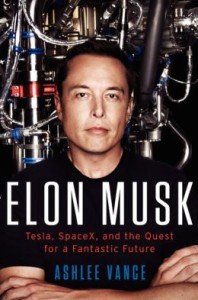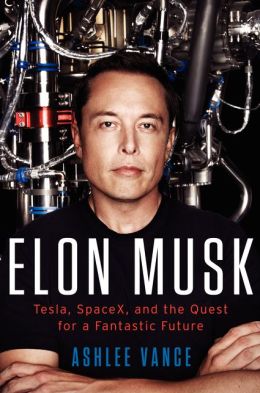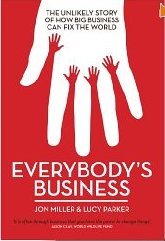
When I was a child, I was addicted to science fiction. Many of the novels I read then rhapsodized about human settlements on Mars, the moons of the outer planets, and among the stars beyond. That fantasy morphed into an expectation as the Apollo Project achieved its seemingly impossible dream of landing men on the Moon: surely, some day within my lifetime, I thought, NASA would follow up the Moon landing with voyages throughout the solar system, and a colony on Mars would soon follow.
Estimated reading time: 5 minutes
Sadly, that expectation was dashed as NASA was progressively defunded and disregarded, first, in the throes of the Vietnam War, then in the deep recession resulting from the OPEC oil embargo. The fantasy of my childhood seemed gone — perhaps not forever, but for any future I could foresee.
The dream is alive again
Now the dream is alive again: an entrepreneur with his roots in Silicon Valley has taken it upon himself to begin humanity’s reach for the stars. Chances are, you’ve come across his name: Elon Musk. Though for years he was vilified as a hopeless romantic, Musk has now founded or helped start three remarkable companies: Tesla, which makes electric automobiles and large batteries for home use; SolarCity, the country’s largest installer of home solar systems; and SpaceX, which is proving that private enterprise can put satellites into orbit and resupply the International Space Station at far lower cost than any government — or any other company, for that matter. Musk is CEO of both Tesla and SpaceX, dividing his time between Los Angeles and Silicon Valley.
Elon Musk: Tesla, SpaceX, and the Quest for a Fantastic Future by Ashlee Vance (2015) 373 pages ★★★★★
On paper, Elon Musk is “worth” $10 billion as I write, at least so far as Wall Street is concerned, but that doesn’t seem to mean much to him. Aside from his efforts to move the world into a solar future, it is SpaceX that is clearly the principal agent of his vision of establishing a human colony on Mars. Given the extraordinary skill Musk has displayed in building his three still fast-growing companies, it would be a huge mistake to write him off as a dreamer.
A huge fortune, then close to bankruptcy
South African by birth, Musk made his first major fortune in Silicon Valley as CEO of PayPal. The sale of that company to EBay made him a multimillionaire, providing the capital to fund all three of his companies. Musk went about as far out on a limb as any investor possibly could, “putting $100 million into SpaceX, $70 million into Tesla, and $10 million into SolarCity.” In fact, he came perilously close to bankruptcy and was only bailed out by the seemingly miraculous coincidence that a within a few days around Christmas 2008 a huge government contract saved SpaceX and Musk reached agreement with investors in Tesla to rescue the company.
Ashlee Vance’s well-balanced biography of this truly amazing man — the first authorized biography Musk has permitted — is based on interviews not just with Musk himself in monthly dinners but with some 200 colleagues, employees, former employees, ex-wives, and peers in Silicon Valley. Many of these people see him as a monstrous expression of contemporary capitalism, perhaps not quite as nasty as Steve Jobs but not far behind, either.
Ferociously single-minded
A few others — those closest to him — know Musk as a warm, caring, funny husband, father, and friend. (With his first wife, he is the father of five boys, twins and triplets, and has them four days a week.) Yet everyone remarks on the ferocity of his single-mindedness in running his companies. Noting the world-class challenges Musk has chosen to meet — reaching Mars and converting the planet from fossil fuels to solar — Vance compares him favorably to Jobs, who gave us the iPod, the iPhone, and the Mac, none of them historically significant on anything approaching Musk’s ambitious goals.
As Vance puts it, “Mark Zuckerberg wants to help you share baby photos, Musks wants to . . . well . . . save the human race from self-imposed or accidental annihilation.” The author even ventures the opinion that Musk’s achievements rise to the level of Thomas Edison’s. Only there does he venture overboard. Obviously, the jury is out. We’ll have to wait and see what comes of Musk’s work in the long run.
An extraordinary memory for detail
You might imagine that such an overachiever would be some kind of genius. You would be right. As a boy, he read as much as ten hours a day. He read two sets of encyclopedias, and his eidetic memory “turned him into a fact factory.” His contemporary coworkers continue to remark on his extraordinary memory for detail. Combined with an off-putting worth ethic that is the bane of his employees’ existence, Musk’s ability to understand and remember virtually everything makes him seem superhuman. Maybe he is. And at this writing he’s only 46.
For related reading
For a later biography of Musk, see Elon Musk by Walter Isaacson (A revealing new biography of Elon Musk).
I’ve also reviewed The Founders: The Story of PalPal and the Entrepreneurs Who Shaped Silicon Valley by Jimmy Soni (A group biography of the PayPal mafia). Elon Musk was one of three principals in the company’s origin story.
This is one of the Best books about innovation reviewed here.
Like to read good biography? Check out 10 great biographies.
If you enjoy reading nonfiction in general, you might also enjoy:
- Science explained in 10 excellent popular books
- My 10 favorite books about business history
- Top 10 nonfiction books about politics
- Good books about space travel
And you can always find my most popular reviews, and the most recent ones, on the Home Page.


























